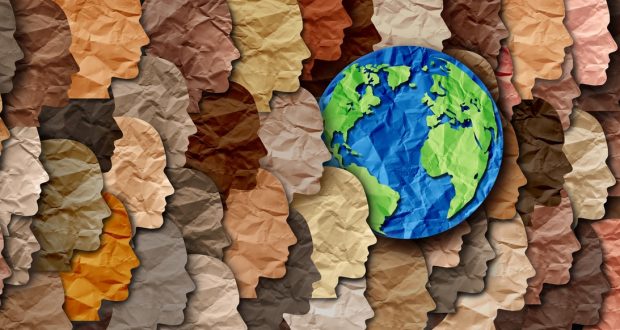By Jaivon Grant | California Black Media
Aaron McCall, who coordinates federal advocacy for California Environmental Voters, believes that the environmental protection movement to protect the planet has been viewed primarily through a White-centric perspective.
McCall is committed to shifting this paradigm.
By incorporating environmental justice issues into the national and state-level discussions on climate and conservation, McCall believes he can make a difference. He is also committed to drawing attention to the unique challenges Black and other minorities face as technology rapidly evolves to mitigate the effects of climate change and pollution.
“I really have a passion for environmental issues, specifically because in Oak View, there are a lot of oil rigs and trash refineries. This means the air quality for people living there is a lot lower — mainly Black and Brown people,” said McCall who is a resident of Costa Mesa in Orange County, but frequently visits Oak View – a neighborhood in Huntington Beach, located about eight miles away.
“The priorities are mainly rich and White, which leads to Black people not being at the table to talk about these issues. So, we are often the first to suffer,” he added.
According to McCall, environmentalists, who are predominately wealthy and White, often overlook the damage inflicted on Black and minority communities. Also, businesses pollute minority communities while ignoring the negative impact on both people and the environment, justifying their actions by claiming they “are giving Black people jobs.”
April is Earth Month. For African American environmental stewards in California like McCall and environmental justice advocates groups around the country like the National Black Environmental Justice Network, it is a time to highlight the tireless work they do year-round, and an occasion amplify some of the most pressing environmental challenges Black communities face.
Congresswoman Barbara Lee (D-CA-12), who is running for U.S. Senate to replace Sen. Dianne Feinstein, says the effects of climate crisis are evident in California.
“Drought, record heat waves, and wildfires that have devastated entire communities. As the United Nations and scientists around the world have made clear, we can still preserve a livable climate for future generations. But that window is closing fast,” Lee said in her Earth Day statement.
“We also must recognize that justice has to be at the heart of our fight against climate change. This crisis is disproportionately affecting vulnerable communities around the world,” Lee added.
McCall says many Black communities remain on the frontlines of environmental pollution.
“There is currently lead in our water. There are kids who have been born that are now in middle school and have never had clean water in their homes,” said McCall. “There needs to be more equity and justice when it comes to investments and corporate accountability.”
Climate change, a result of human-caused greenhouse gas emissions, is often perceived as a distant threat. However, evidence shows that the world is already experiencing changes in seasonal temperatures and weather patterns. For instance, Montebello, a city in Los Angeles with a predominantly minority population, recently experienced its strongest tornado in 40 years. This event forced over 15 businesses to close and likely spread pollutants from nearby waste facilities into the air and water.”
The solution to this issue is complex. Black environmental advocates often highlight that it is easy for privileged individuals to suggest that others simply relocate without considering their struggles and limitations. However, when environmental disasters occur in disadvantaged communities, residents often lack the resources and information necessary to protect themselves and their families.
An initiative that has become a national priority – and one of the biggest pushes for California state government — is the transition to electric vehicles. Black eco-activists argue that while the adoption of zero emissions vehicles (ZEVs) is crucial, in the rush to adapt to them, advocates fail to consider the costs and potential impact on minorities or and lower-income communities during the transition.
“It’s not as easy as saying ‘buy an electric car to save the environment,’” says McCall. “There are quite a few significant factors to think about, especially for Black folks. Where are we going to charge it? Is the infrastructure in place? What are the limitations of the grid?”
“Black people have been involved in conversations about equity from the very beginning. There are many ways for us to continue to be involved and for our voices to be heard,” added McCall.
 Westside Story Newspaper – Online The News of The Empire – Sharing the Quest for Excellence
Westside Story Newspaper – Online The News of The Empire – Sharing the Quest for Excellence





